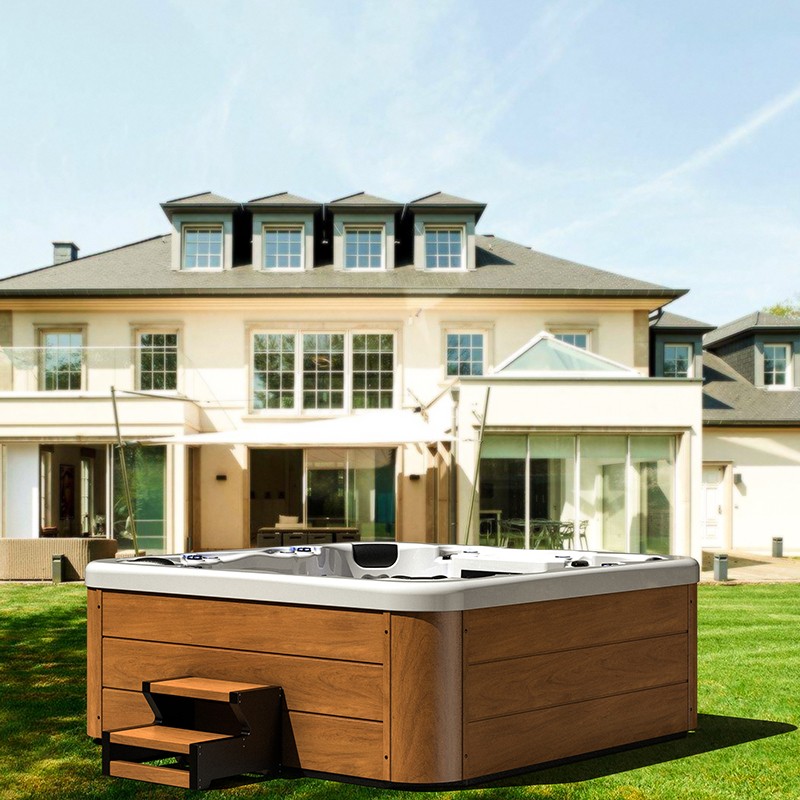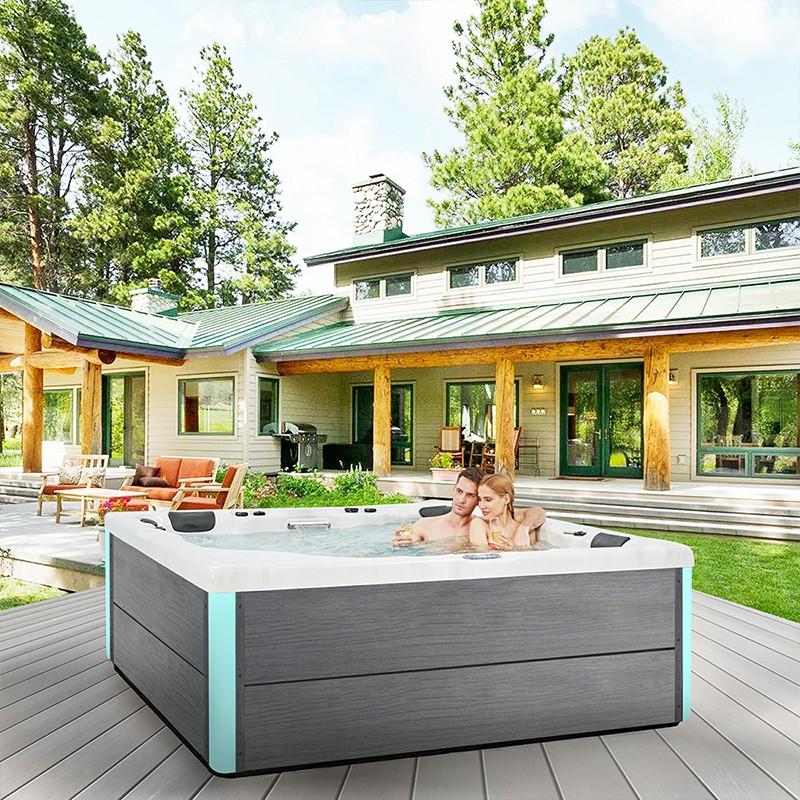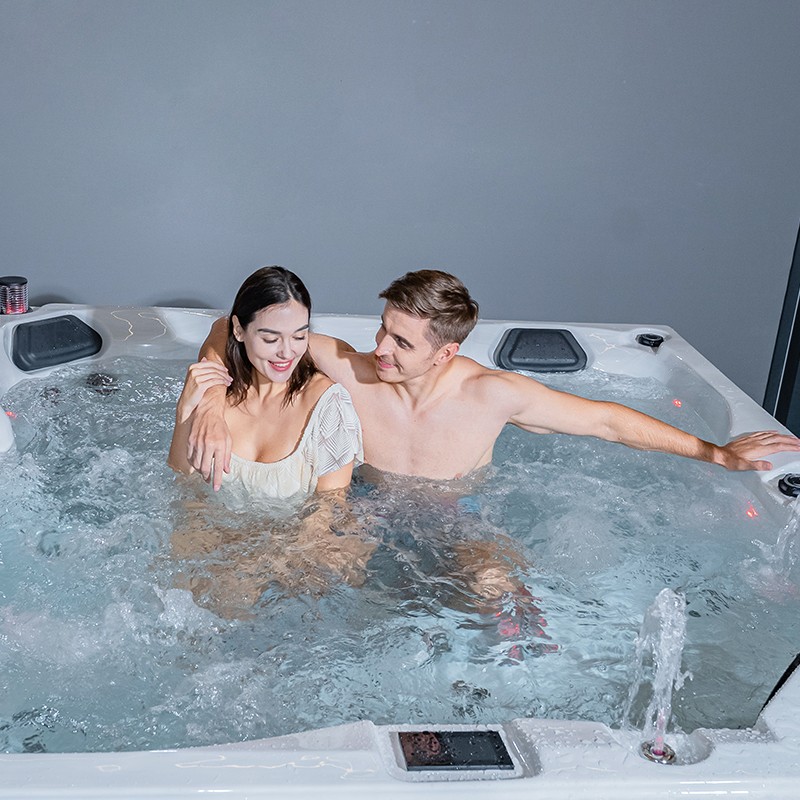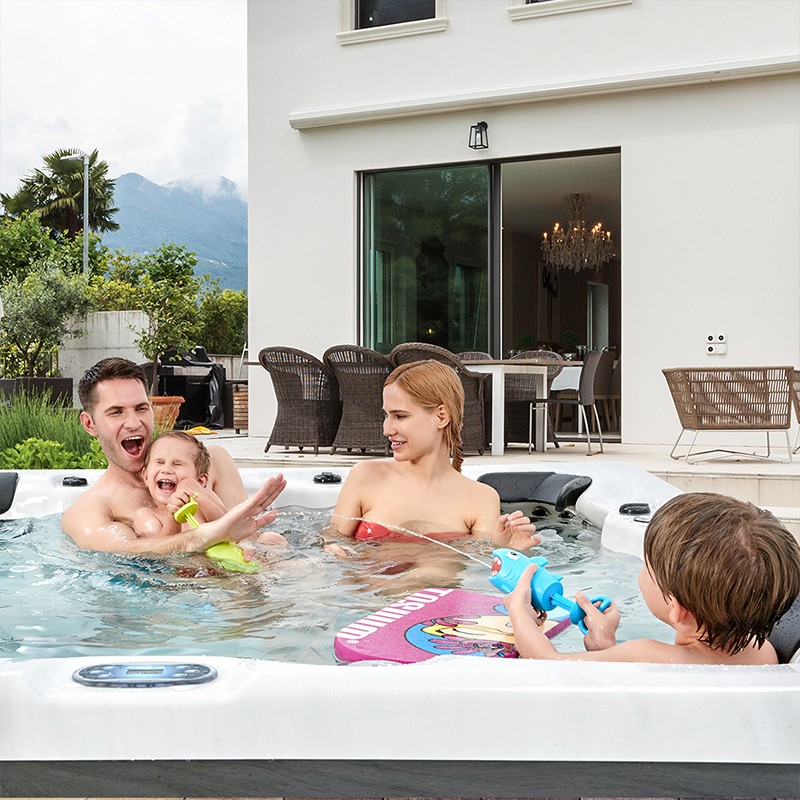
Why do I feel thirsty after a spa jacuzzi tub soak?
2025-11-15 15:30Many people experience a common feeling after a spa jacuzzi tub soak: despite simply relaxing in warm water, they feel unusually thirsty afterwards, sometimes needing to drink a lot of water to relieve the thirst. This phenomenon is not accidental, but rather a result of a series of physiological reactions that occur in the body within the spa environment.
This article will analyze in depth from multiple perspectives why you feel thirsty after a spa jacuzzi tub soak and explore how to scientifically replenish fluids and care for your body while enjoying a comfortable spa experience.

Why does the environment in a spa jacuzzi tub affect the body's water balance?
The main feature of a spa jacuzzi tub is that it helps relax muscles, promote blood circulation, and reduce stress through constant-temperature hot water and the massage effect of water flow. However, during this process, the body is actually constantly losing water.
1. The Relationship Between Temperature and Sweating
When the body is in hot water that is higher than body temperature, the capillaries in the skin's surface dilate, and the body's temperature regulation mechanism is activated. Although there's no visible sweat on the body surface when immersed in water, the body still loses moisture through "imperceptible evaporation." The higher the water temperature and the longer the soak, the more pronounced this evaporation effect.
2. The Illusion of Humidity and Sensation
In a spa jacuzzi tub, the surrounding air humidity is high, making it difficult for the body to perceive moisture loss. Even if the body is "sweating," the warm, humid environment causes the sweat to quickly mix with water, so we don't feel it. However, the body's internal water is continuously decreasing through metabolism.
3. The Stimulation of the Massage Water Flow
The jets of water in a spa jacuzzi tub not only promote local circulation but also accelerate metabolism, increasing cellular activity and water consumption. In other words, the "comfortable stimulation" of the water flow actually promotes the body's internal water usage.

Why does soaking in a spa jacuzzi tub speed up metabolism?
Soaking in a spa jacuzzi tub is like entering a highly efficient "metabolic chamber." The combined effects of heat, water pressure, and water flow significantly enhance physiological activities in the body within a short period.
1. Heat Stimulation Promotes Circulation
Warm water dilates blood vessels, increases heart rate, and accelerates blood circulation. During circulation, blood delivers more oxygen and nutrients to tissues while removing waste products. This enhanced metabolic activity requires more water to maintain cell function.
2. Detoxification and Water Loss
Many spa concepts advocate "detoxification and wellness," and the process of "detoxification" often relies on water. Water is consumed in large quantities as the body eliminates metabolic waste through the skin, respiratory system, and circulatory system. Thirst after a spa jacuzzi tub soak is the body's way of signaling a need to "replenish resources."
3. Endocrine Response
Hot water soaking stimulates changes in the secretion of adrenaline and antidiuretic hormone (ADH). Initially, heat stimulation may lead to a decrease in ADH secretion, temporarily increasing urination, further resulting in water loss and increased thirst.

What are the hidden effects of water pressure in a spa jacuzzi tub on the body?
In a spa jacuzzi tub, water pressure is an often overlooked but crucial factor. It's not just part of a comfortable massage; it directly affects the body's circulatory system and fluid distribution.
1. Hydrostatic Pressure Compression Effect
When the body is completely surrounded by water, the hydrostatic pressure creates a compression effect on the skin and superficial tissues, promoting blood return. This pressure change causes fluid to flow from the interstitial spaces into the vascular system, resulting in a temporary increase in blood volume. To balance the body's fluids, the kidneys increase urine output, leading to a decrease in body water.
2. Changes in Cardiac Load
Water pressure slightly alters the heart's working pattern, requiring it to adjust to the fluid distribution. This response triggers a mild stress response in the body's metabolism and manifests as a natural signal of needing to rehydrate after the bath.
3. Respiratory System's Coordination
The presence of water pressure outside the chest cavity also makes breathing slightly more labored. Deeper breathing increases evaporation from the respiratory mucosa, further intensifying thirst.
Why does the body feel "dry" after a spa jacuzzi tub soak?
Many people experience not only thirst but also dry skin after a spa jacuzzi tub soak. This is actually closely related to the hot water, the duration of the soak, and changes in the skin barrier function.
1. Hot water damages the skin barrier
Soaking in hot water for extended periods washes away the skin's natural oil layer. This oil layer normally plays a role in locking in moisture and providing protection. Once damaged, the skin loses moisture more easily, leading to dryness, tightness, and even slight peeling.
2. Chlorine and mineral residues
Some spa jacuzzi tubs use tap water or disinfected circulating water. The chlorine or hard water minerals in these waters may exacerbate skin irritation under high temperatures. This minor chemical irritation can also cause the skin to feel "dry," which in turn triggers a feeling of dry mouth and throat.
3. Feedback from the nervous system
When the skin's surface moisture decreases, the nervous system sends thirst signals to prompt the body to replenish fluids and prevent overall dehydration. Thirst is not only a physiological response but also a complex sensory signal.
Does everyone feel thirsty after a spa jacuzzi tub bath?
While most people experience thirst after a spa jacuzzi tub bath, the intensity varies from person to person.
1. Individual Differences
People with high metabolisms (such as young people or athletes) are more prone to dehydration in hot water. Individuals with slower metabolisms or weaker circulation may not experience this as noticeably.
2. Bathing Time and Temperature
Water loss increases significantly when bathing for more than 20 minutes or at temperatures above 38°C. Appropriately controlling bathing time and temperature can effectively reduce the risk of excessive dehydration.
3. Diet and Hydration Status
If you haven't drunk enough water or consumed a high-sodium diet before bathing, you'll be more likely to feel thirsty afterward. This is because the increased osmotic pressure in the body enhances the perceived need for water.

Why do I feel thirsty even after drinking a lot of water after a spa jacuzzi tub bath?
Sometimes people find that even after drinking several glasses of water immediately after a spa jacuzzi tub bath, they still feel a dry throat or feel like their body hasn't absorbed the nutrients. This is because the body needs time to rebalance its fluid distribution.
1. Asynchronous Replenishment of Blood Volume and Cellular Hydration
Drinking water quickly replenishes blood volume, but intracellular hydration is slower. The body prioritizes replenishing plasma volume, and cellular hydration takes about 1 to 2 hours.
2. Electrolyte Imbalance
Sweating and metabolism remove electrolytes such as sodium and potassium. Drinking only pure water can dilute these electrolytes, making it difficult for cells to effectively absorb the water. Drinking beverages containing electrolytes is more effective at truly quenching thirst.
3. Body Temperature Not Fully Restored
After a bath, body temperature remains relatively high, and the body is still in a "heat dissipation" phase. Water evaporation continues, which is one reason why you may still feel thirsty after drinking water.
How to Hydrate Scientifically and Relieve Thirst After a Spa jacuzzi Tub Bath?
Since thirst is common after a spa jacuzzi tub bath, proper hydration is crucial. The following methods can help maintain good fluid balance:
1. Pre-hydration
Drink about 200-300 ml of warm water 30 minutes before entering the spa jacuzzi tub to help replenish fluid reserves.
2. Controlling water temperature and time
The ideal water temperature is 36-38°C, and the bath time should be 10-20 minutes. Excessively high temperatures and prolonged soaking will exacerbate water loss.
3. Replenishing electrolytes after bathing
Choose lightly salted water, coconut water, or low-sugar sports drinks to help quickly restore fluid balance.
4. Simultaneous skin moisturizing
Rinse your body immediately with warm water after bathing, then apply moisturizing lotion to prevent further moisture evaporation from the skin.
How to determine if you experience mild dehydration after a spa jacuzzi tub bath?
After soaking in a spa jacuzzi tub, if your body experiences the following signs, it indicates you need to rehydrate immediately:
• Persistent dry mouth and throat;
• Darker urine color or decreased urine output;
• Feeling fatigued and dizzy;
• Dry, tight skin.
If these symptoms occur, drink water immediately and replenish electrolytes if necessary. If accompanied by palpitations or worsening dizziness, rest as soon as possible and avoid continuing the bath.
How Does LOVIA SPA Support International Distributors?
LOVIA SPA works with global distributors and dealers by providing wholesale prices, marketing materials, and promotional support. We offer stable supply, exclusive discounts, and regional sales protection policies for long-term partners. Distributors benefit from factory training, spare parts availability, and after-sales services.
With a strong production capacity and export experience since 2004, LOVIA SPA is ready to help you grow your local spa business.
